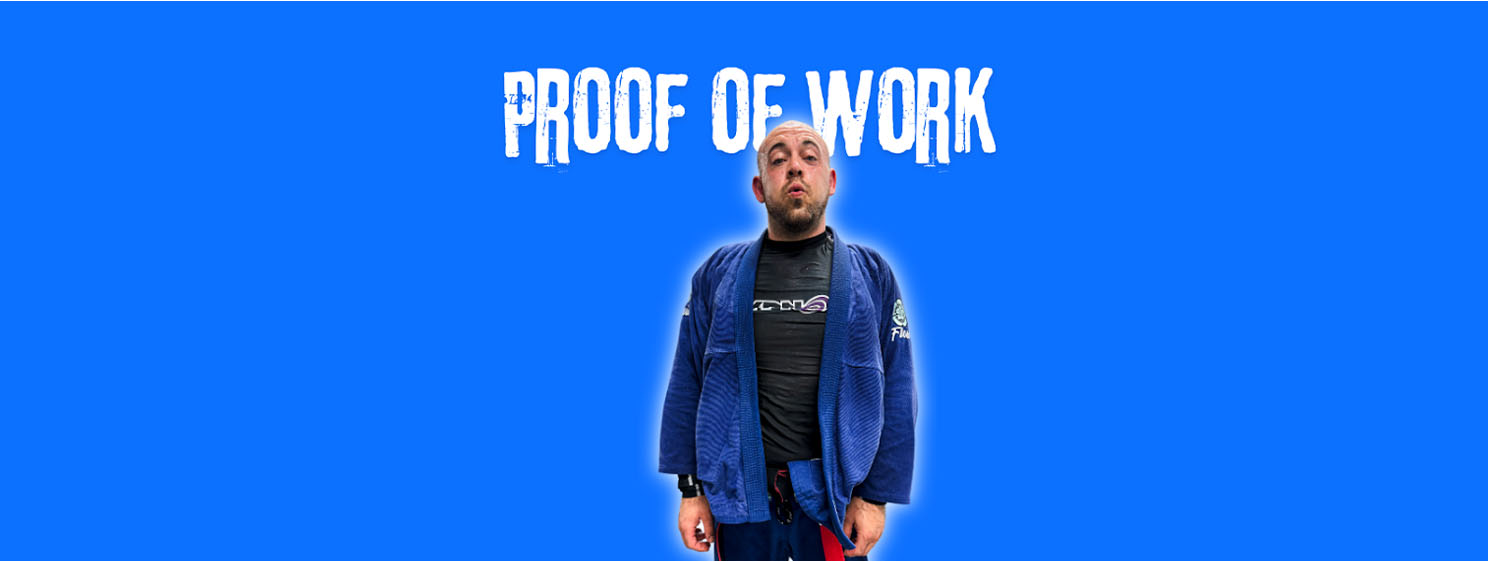|
Getting your Trinity Audio player ready...
|
If there is one thing I’ve emphasized again and again in my work, my writing, and my life, Bitcoin is not magic Internet money for passive investors. It is a system built on proof-of-work (PoW), and the truth embedded in that phrase is far more literal than most people realize.
Over the last 10 years, we have seen a strange cultural shift. Americans increasingly fantasize about easy wins. Overnight riches. Lambo-filled TikToks. Bots and airdrops. Outsource everything. Drop-shipping success. Passive income for a generation that has never worked a 60-hour week.
I was raised differently.
My upbringing was rooted in the Protestant work ethic: a belief that building a meaningful life was a form of worship and dominion. For some, that meant becoming a mechanic and living within your means. For others, it meant building an empire. Either way, the path forward was paved in work… hard, sometimes thankless work.
When I found Bitcoin in 2012, it wasn’t because I was trying to get rich quickly. I was running a print marketing business, tinkering with side hustles in IT, managing B2B logistics, and still bartending at TGI Fridays. I was a college student by day, a talk radio host in the afternoons, and working the third shift in a box factory to get ahead. Starting in 2010, I was also a Brazilian Jiu-Jitsu student (and then a coach), so I would have a skill to keep me in shape and fall back on if I needed to do something else eventually.
None of this is to brag. It’s context because people seem to have forgotten what it means to grind.
Now, at nearly 40, I’ve had the good fortune of successful exits and the hard lessons of a brutal bankruptcy. I’ve built real companies, earned a black belt in the most demanding martial arts, and raised a family I’m proud of. None of it was accidental. None of it was easy. Every inch was earned.
And that’s precisely why I find today’s obsession with get-rich-quick schemes so hollow.
Anyone can rent a Lambo, buy a fake watch, and push affiliate links. But you can’t fake a black belt, you can’t fake a 300lb bench press, a clear mind on stage, or a profitable company that employs real people. These are the kinds of things that don’t get vaporized when the market dips.
This brings me to the cultural and economic crisis we’re living through.
Young people don’t want entry-level jobs. They lived in a generation with inflated belts in martial arts schools and participation trophies in park district soccer, and they were taught that their emotional fragility is actually a strength. Today, the DEI bureaucracies are more concerned with optics than performance and feelings over facts, and they shout that the economy bends to the demands of mediocrity. We’ve created a generation allergic to discomfort and resentful of merit.
I mean, look at this headline!
The Chinese want to win. That’s uncomfortable for people to hear, but it’s true. Their workforce outpaces ours in hours worked, education, and productivity. So we cry foul and demand tariffs—not as a strategy to increase American output, but as a crutch to preserve the illusion of competitiveness while ultimately demanding higher wages for less work for the sake of social fairness. It’s economic denialism, and it won’t last because it can’t last.
This cultural softness infects the Bitcoin economy, too.
The BTC subculture has convinced itself that wealth is simply a function of early adoption and commitment to the culture. HODL and wait. Do nothing. Be rewarded for your piety. The protocol is sacred (for now), immutable (until it’s not), and success comes from adherence and purity—not action.
It’s funny because, as a longtime Protestant, BTC has become little more than the prosperity gospel dressed in cyberpunk drag.
But that’s not what Bitcoin was built for.
Bitcoin is a utility. A network for value, communication, and data integrity. Essentially, it’s a tool for commerce. A tool, when wielded by serious entrepreneurs, that can change the entire world to be more wealthy, more efficient, and more free! It was designed to create opportunity. Not redistribute it to the idle. It rewards action, not idolatry.
If we don’t use it, it will die.
If we don’t build with it, businesses, services, commerce, communication—it will become a digital relic. A failed experiment clutched by nostalgic bag-holders who thought they were front-running a revolution while refusing to participate in it.
Everything degrades when not used. Your body. Your mind. Your skills. Your economic system. Proof-of-work isn’t just about mining. Satoshi used the term “work” to make a point about fitness, honesty, and strong signals.
Why?
Because, at its core, proof-of-work is a worldview. An ethic. A call to arms for builders and doers and competitors who believe the future is something you build, not something you buy and wait on.
So my challenge is simple:
Pick something hard and do it every day. Do it consistently and get better than most others just by attrition and focus. Then, it becomes easy. Build something. Sell something. Learn something. Invest in your body. Fix your relationships. Be someone who adds value, competes with excellence, and can be trusted with the weight of the future.
That’s how you become antifragile. That’s how you build a life worth living. And that’s how Bitcoin wins: when we stop waiting for magic and start doing the work.
Watch: Why Proof of Work is the most secure model of consensus

 03-01-2026
03-01-2026 




